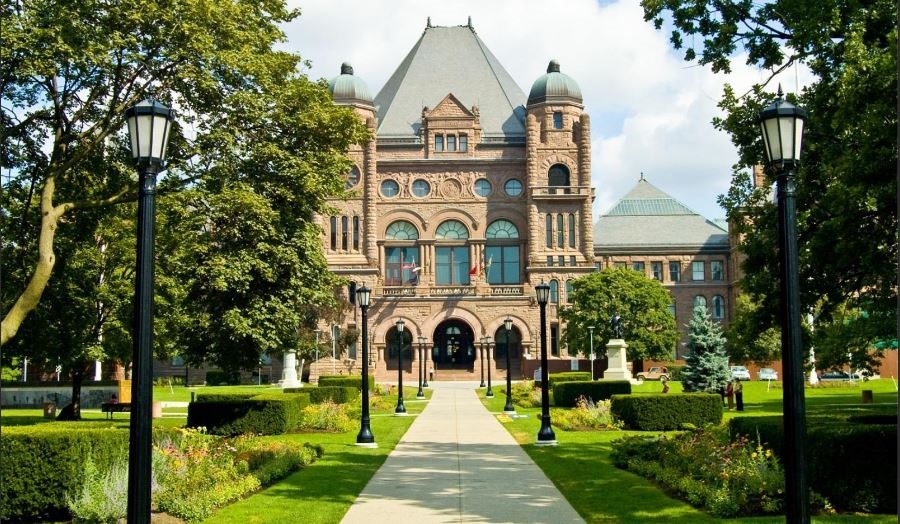Over the past three months, OSPE’s Task Forces, comprised of engineering subject matter experts, have been hard at work preparing comprehensive responses to government consultations.
OSPE meets with the government regularly to keep the critical work and expertise of engineers top of mind. OSPE drafts timely submissions to ensure engineers’ key concerns and suggestions are recognized and discussed in the appropriate forums. By taking a non-partisan, evidence-based approach to advocacy, OSPE has become recognized as a trusted advisor to government and is regularly asked to provide input on policy, planning and budget decisions. OSPE’s continued success relies on our strong member base and the active involvement of our Task Force experts.
ERO 019-2377 Proposed Project List for comprehensive environmental assessments under the Environmental Assessment Act (EAA)
To achieve their vision for a project list that focuses on potential environmental impact, the Government of Ontario conducted a consultation on a proposed list (the Comprehensive EA Project List) which will identify the projects that will be subject to the new Part II.3 of the Act (comprehensive environmental assessment) through a regulation.
In some cases, they have described the project type with specific detail, and in other cases, they are looking for broad input with respect to how we should describe the projects that should be on the Comprehensive EA Project List.
In keeping with the approach of projects with the most significant impacts having the most comprehensive assessment process, projects included in the Comprehensive EA Project List will be those projects that, in the Ministry’s experience, have been seen to have the potential for significant environmental impacts based on the following criteria:
- the magnitude of the effect
- the geographic extent of the effect
- the duration of the effect
- the frequency of the effect
- the degree of reversibility of the effect
- the possibility of occurrence of the effect
Read OSPE’s full response HERE
Extending Grandfathering for Infrastructure Projects and Providing Additional Flexibility for Excess Soil Reuse
As a result of COVID-19-related delays to infrastructure projects and to support reuse of excess soil, the Government of Ontario is proposing amendments to the Excess Soil Regulation and other regulations so that technical assessments are not repeated, delayed projects can proceed and soil can be managed more flexibly while protecting human health and the environment.
To provide further clarity and flexibility to support appropriate beneficial reuse of excess soil, we are now proposing amendments to O. Reg. 406/19 and O. Reg. 153/04 under the Environmental Protection Act. The proposed changes include:
- extending the date applicable to the grandfathering provisions by which construction projects must be entered into by one year, from January 1, 2021 to January 1, 2022, to accommodate projects that are close to starting construction but delayed due to COVID-19
- clarifying the scope of grandfathering provisions to include geotechnical studies completed by January 1, 2022, to ensure these studies do not have to be repeated
- replacing waste-related Environmental Compliance Approvals with standard rules for operations processing excess soil for resale as a garden product, and operations managing clean soils for residential development projects
- providing added flexibility to soil management rules such as those for soil storage and reuse of soil impacted by salt
- enabling Environmental Compliance Approvals to specify alternative soil management requirements to provide project-specific flexibility
- updating O. Reg. 406/19 and the Protocol for Analytical Methods Used in the Assessment of Properties under Part XV.1 of the EPA (Analytical Procedure) with the modified Synthetic Precipitation Leaching Procedure (mSPLP)
- clarifying that the excess soil registry to be used for filing notices will be delivered by the Resource Productivity and Recovery Authority and expand the registry’s purposes to also include integration with other third-party systems supporting reuse of excess soil, such as tracking systems, soil matching systems and other non-regulatory programs, considering cost, security and other relevant matters.
Read OSPE’s full response HERE
Ontario Private Sector Privacy Reform
To continue the mandate of digital innovation, the Ministry of Government and Consumer Services seeks to address the gaps in the Ontario’s legislative privacy framework, and to establish comprehensive, up-to-date rules that will protect privacy rights and increase confidence in digital services.
The Government wants Ontarians to have more access to and control over their own data when interacting with private businesses and organizations: to be better informed about how their personal information is used and what they are agreeing to when providing it; to be able to withdraw consent and retrieve their data more easily; to be certain that Ontario’s businesses will uphold their privacy even in the use of new technologies and digital business models.
Read OSPE’s full response HERE





Leave a Comment